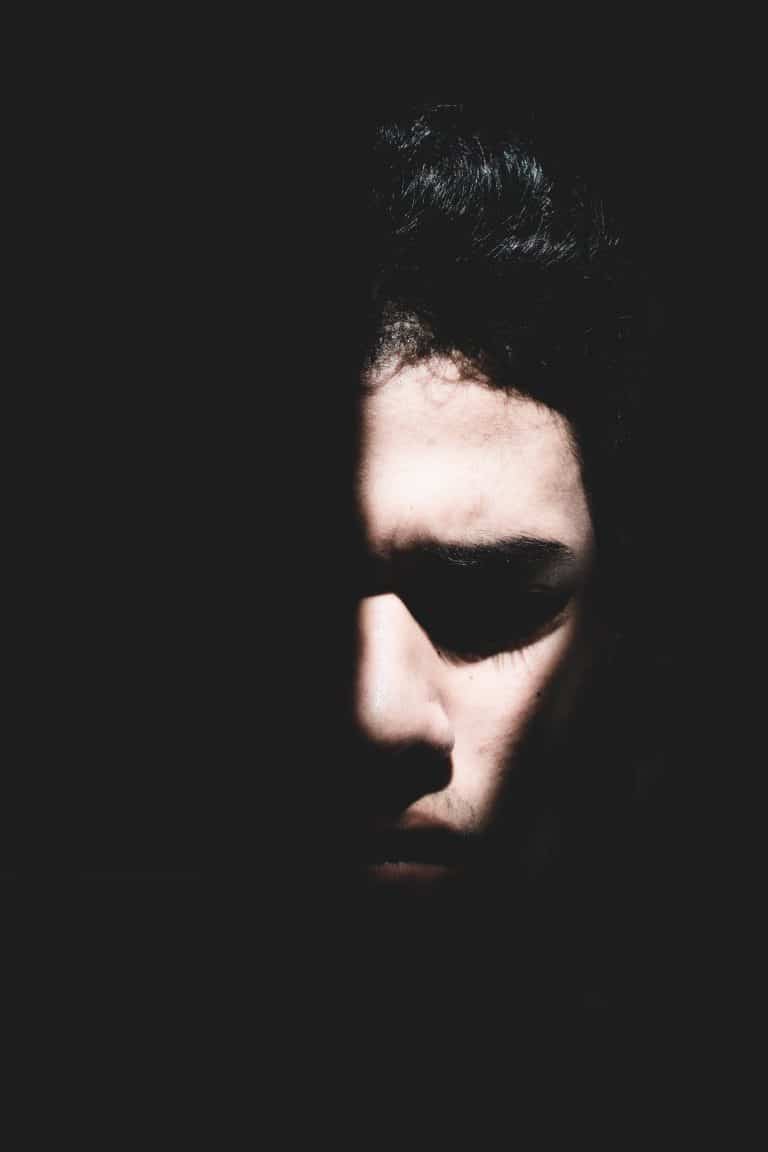
Image by Ian Espinosa/Unsplash, Public Domain Dedication (CC0).
We Are Not Beyond Repair
One thing that the current outpouring of testimonials about sexual harassment and abuse in working environments means is that many associates and colleagues of the accused are currently witnessing a grotesque transformation: Those who were familiar to them, who were friends or allies, are suddenly being revealed as agents of wickedness. The mutation of the familiar and ordinary into the frightening and unknown is one of the chief characteristics of nightmares, and for good reason. There is perhaps no more primal fear than that of unwittingly inviting danger into one’s environment: It is innately terrifying to imagine that the vine you stepped on is really an adder, that the stranger you invited in is really a vampire, that the child you nursed is really a changeling, that the meat you ate is really flesh, that the man you knew was really a predator all along.
This feeling of dreadful disorientation is, I suspect, what’s behind so many of the expressions of anxiety that have followed each revelation. Sarah Silverman nearly cried while talking about the allegations against comedian Louis C.K., asking, “Can you love someone who did bad things?” In TIME, feminist writer Jill Filipovic wondered: “What do we do when even the good guys are bad?” And in a similar piece in The New York Times, columnist Michelle Goldberg mused that “however these dilemmas play out, [women] lose: either the moral high ground or men whom we need, admire, and maybe even love.”
Finding out that a friend, ally, mentor or loved one is an inveterate predator — the sort of recalcitrant, incorrigible offender who no longer has hope of reform, which I’ve written about before — is likely deeply disturbing, and rightfully so: Not only does it have that ‘nightmare’ quality considered above, but the closest friendships ought to involve us almost inextricably with the other person, and it’s reasonable that we should feel implicated in their moral development. Learning that a friend is a hardened abuser isn’t just a let-down; it feels like a failure. That’s just a testament to the kind of bond friendship is.
But I don’t think it’s necessary to accept defeat in every case.
When we conceive of social inequity operating through power structures, we’re admitting that certain behavioral pathways are easier to traverse than others, and that certain bad behaviors are rewarded with power, prestige, and esteem. Behaving accordingly is the agent’s choice, and they are accountable for their decisions to cooperate with power at the expense of others. But because they are also, to some degree, following the path of least resistance, it isn’t necessary for them to be willfully malicious to participate in these behaviors. That’s why these power structures are so dangerous: They can sort of sweep people along, meaning that it doesn’t take a whole lot of intense, volitional evil to wind up doing a very bad thing. This is in fact what it means to describe biases like sexism in terms of culture, paradigms, and structures.
And this means that it isn’t necessarily the case that someone who, as Silverman put it, “did bad things” is a “bad guy.” It means they did bad things in a culture (and in many of these cases, in industries) that either reward or do not punish certain transgressions against people of lower status. But it doesn’t mean they’re irreversibly evil, and I don’t think it means that everyone who has ever known or supported them must be expected to abandon them.
In The Brothers Karamazov, Dostoevsky has this wonderful epigram:
“As a general rule, people, even the wicked, are much more naive and simple-hearted than we suppose.”
It’s an especially useful insight in these times, when it seems that pretty much everyone is guilty of something. The New York Times’ Farhad Manjoo wondered on Twitter how “women don’t regard all men as monsters to be constantly feared,” given the volume of recent allegations, and for my part, this is how: As a general rule (and there are certainly exceptions) people (even the wicked) are more thoughtless, morally unheroic, weak-willed and negligent of their obligations than they are diabolically malicious. They are accountable for what they have done. But they are, for the most part, not beyond repair.
There are certainly circumstances where I can imagine total disavowal and abandonment being appropriate; and I don’t think the victims of particular offenders should ever be tasked with carrying out their abusers’ reform. But as a general rule, I think that those who still maintain relationships with people who have done wrong have the capacity to help them reform themselves and perhaps even repay some of their debts, and I don’t think oblivion is the only answer going forward, even if it is the simplest. “As a general rule, people, even the wicked, are much more naive and simple-hearted than we suppose,” Dostoevsky wrote: “And we ourselves are, too.”
This essay was originally published on Medium. It is reprinted here with permission.
